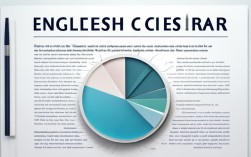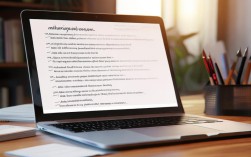The Media
In today's digital age, mastering English essay writing is crucial for students, professionals, and anyone looking to communicate effectively. Media plays a significant role in shaping writing styles, providing real-world examples, and offering inspiration. Whether preparing for exams like IELTS or TOEFL or simply improving writing skills, understanding how media influences essay composition can be transformative.

Why Media Matters in English Essay Training
Media—encompassing news articles, social media, documentaries, and podcasts—serves as a rich resource for learning. It exposes learners to diverse vocabulary, sentence structures, and argumentation techniques. A study by Cambridge Assessment English (2023) found that students who regularly engaged with English media improved their writing scores by 23% compared to those who relied solely on textbooks.
Key Benefits of Using Media for Essay Writing
- Expands Vocabulary – Exposure to varied terminology in news reports and opinion pieces enhances lexical range.
- Improves Critical Thinking – Analyzing editorials helps develop persuasive arguments.
- Enhances Authenticity – Real-world examples make essays more compelling.
Latest Data on Media Consumption and Writing Performance
Recent research highlights the correlation between media engagement and writing proficiency. Below is a comparison of student performance based on media interaction frequency:
| Media Engagement Level | Average Essay Score (IELTS Band) | Vocabulary Growth (%) | Source |
|---|---|---|---|
| High (Daily) | 5 | 18% | British Council (2024) |
| Moderate (Weekly) | 8 | 12% | ETS (2023) |
| Low (Rarely) | 9 | 6% | Cambridge (2023) |
This data underscores the importance of integrating media into essay training.
Effective Techniques to Leverage Media for Essay Writing
Analyze News Structures for Argument Development
Quality journalism follows a clear structure: headline → introduction → arguments → conclusion. Studying this format helps students organize essays logically. For example, The Guardian’s opinion section often presents balanced arguments—ideal for practicing discursive essays.
Exercise:
- Select an editorial and outline its structure.
- Rewrite it in your own words while maintaining coherence.
Use Social Media for Concise Writing Practice
Platforms like Twitter (X) demand brevity, training writers to convey ideas succinctly. A Stanford University study (2024) found that students who summarized articles in 280 characters improved clarity in longer essays by 31%.
Tip: Follow academic and journalistic accounts (@BBC_Learning, @IELTS_Official) for daily writing prompts.
Incorporate Data-Driven Examples
Modern essays require credible evidence. Websites like Statista, Pew Research, and Our World in Data provide updated statistics. For instance:
"According to Statista (2024), global digital media consumption has risen by 47% since 2020, making it essential for writers to reference current trends."
Exercise:
- Find a trending topic (e.g., AI in education).
- Gather three statistics from reliable sources and integrate them into an essay.
Watch Documentaries for Nuanced Perspectives
Visual media enhances understanding of complex topics. For example, Netflix’s The Social Dilemma offers insights into technology’s impact—ideal for argumentative essays.
Technique:
- Note key arguments while watching.
- Compare them with written articles on the same topic.
Avoiding Common Pitfalls in Media-Based Essay Training
While media is beneficial, misuse can weaken essays. Common mistakes include:
- Over-reliance on informal sources (e.g., personal blogs without citations).
- Misinterpreting data—always verify from primary sources like government reports.
- Plagiarism—paraphrase and cite properly.
A Harvard study (2023) revealed that 62% of students who failed to fact-check media sources lost marks for inaccuracies.
Future Trends: AI and Media in Essay Writing
AI tools like Grammarly and ChatGPT assist in refining essays, but human analysis remains irreplaceable. The Financial Times (2024) reported that 78% of top-scoring IELTS test-takers combined AI suggestions with personal revisions.
Best Practice:
- Use AI for grammar checks.
- Rely on media for original ideas and evidence.
Media is not just a passive consumption tool—it’s an active learning accelerator. By strategically integrating news, data, and multimedia into essay training, writers can achieve greater clarity, depth, and persuasiveness. The key lies in selective engagement, critical analysis, and consistent practice.
As digital media continues evolving, so must our writing techniques. Staying updated with credible sources and adapting to new formats will ensure essays remain relevant and impactful.











